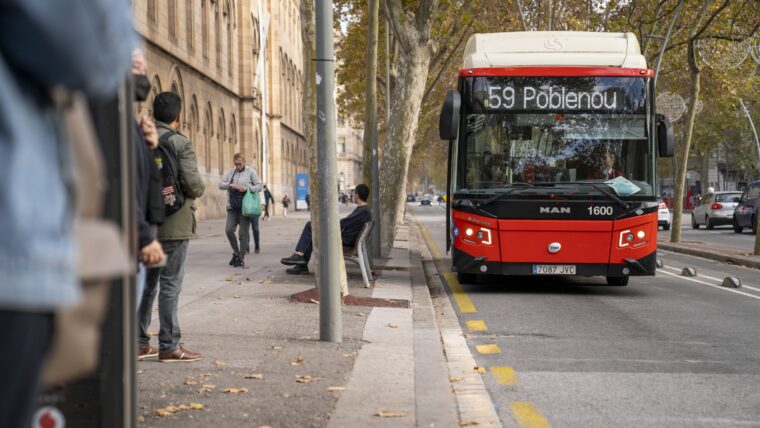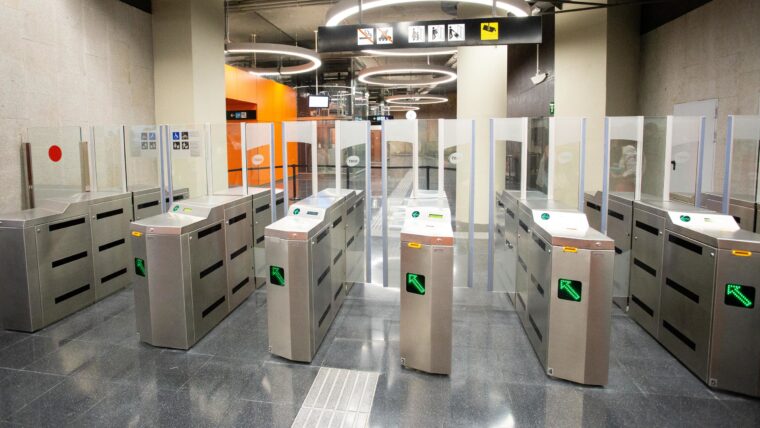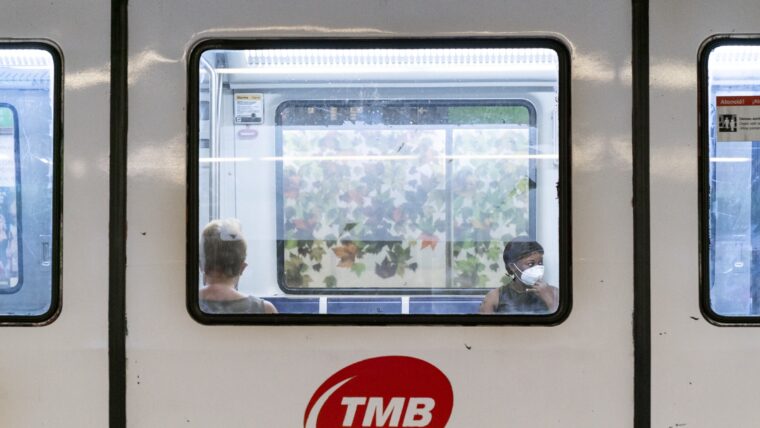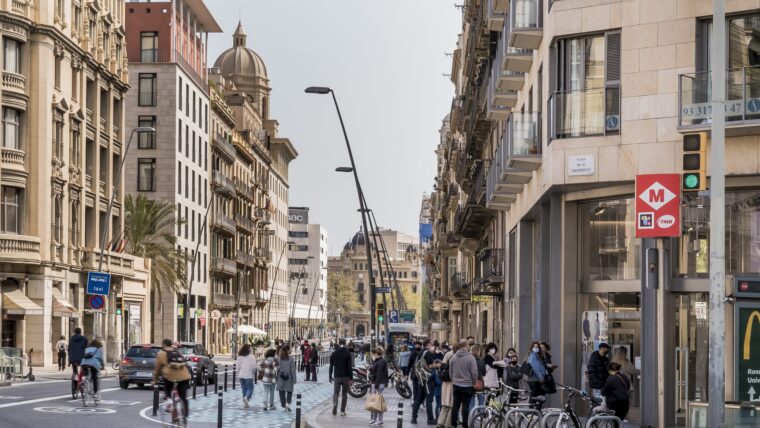Greater energy efficiency and savings on the metro and bus network
Transports Metropolitans de Barcelona (TMB) is promoting different energy efficiency projects on the metro and bus network as part of its Energy Efficiency and Savings Plan. The plan should help reduce the consumption of electricity by 68 GWh and prevent 122,000 tonnes of CO2 emissions every year, representing an estimated saving of 20 million euros a year in consumption and 7 million euros in fixed energy rating costs. Some of the projects are already under way, while others will be implemented in the next few years.

The following projects stand out as ways of achieving these goals:
- Optimisation of automatic driving: applying economical driving modes in metro trains to achieve a reduction of 27 GWh per year and avoid the emission of 6,993 tonnes of CO2 a year. This is being applied on the L1, L2, L3, L5, L9 and L10 services, reducing traction consumption by 15%.
- Recovery of braking energy (metrocharge): this process recovers unused energy which dissipates in the form of heat when trains brake. Some systems are already working, with others to follow in the coming months, whereby 41% of traction energy needed by trains is generated through recovered braking energy, reducing consumption by 15 GWh a year and avoiding 3,885 tonnes of CO2 every year.
- Migrating network lighting to LED technology: this will avoid the emission of 3,793 tonnes of CO2 a year through the reduction of electricity consumption by 14.6 GWh. All stations will have LED lighting in 2023.
- New Smart ventilation system: this is now in place across the metro network and reduces consumption by 6.2 GWh a year, saving 1,616 tonnes of CO2 emissions and also improving comfort. The metro system also has a project for the generation of solar energy at five of its maintenance depots: ZAL, Boixeres, Santa Eulàlia, Sagrera and Funicular. These help TMB achieve a reduction of 3.5 GWh a year, avoiding 906 tonnes of CO2 emissions.
- Generation of solar energy: as for buses, the new depot in Zona Franca will generate enough solar energy to cover 22% of its own needs, reducing consumption by 0.6 GWh a year and saving 169 tonnes in CO2 emissions. A system at this same depot will use residual renewable energies to help power the facility itself. At the Horta depot, a triple generation system is in place which saves 0.5 GWh a year and avoids 130 tonnes of CO2 emissions, as is a dual generation system at Triangle, which also avoids 43 tonnes of CO2 emissions a year.
The projects will allow for more efficient energy use, reduce the environmental impact, recover residual energy, improve user comfort, reduce investment in new infrastructures and boost the use of renewable energies.
These energy efficiency policies form part of the goals of the TMB Strategic Energy Plan 2025 and are in line with the organisation’s Social Responsibility and Sustainability Plan.




